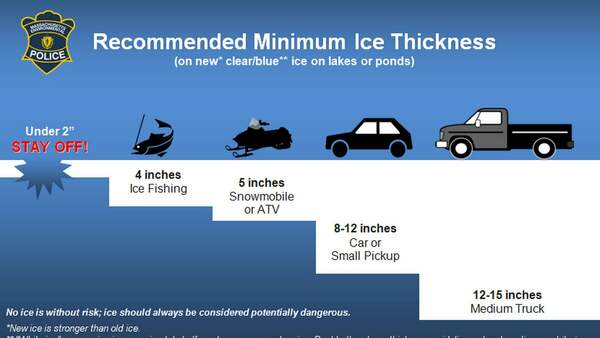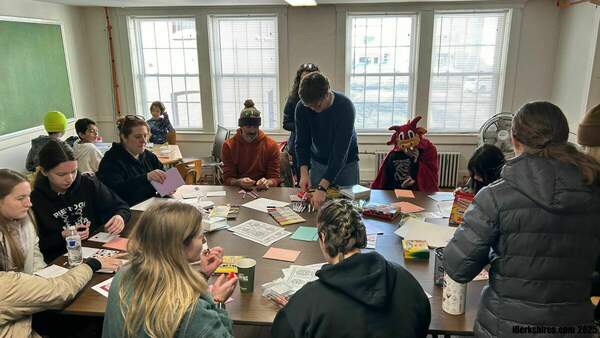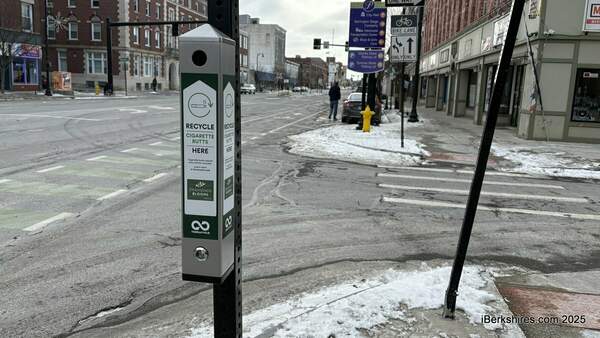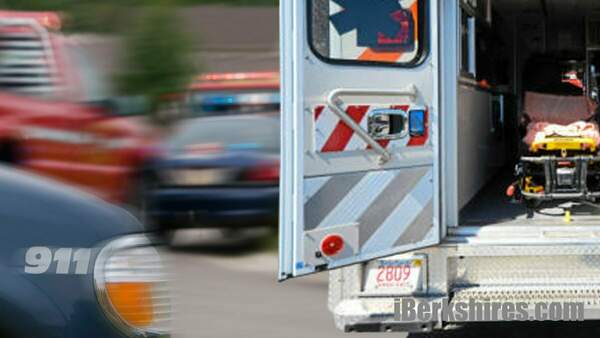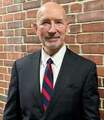Kennedy Succumbs to Cancer at Age 77
 U.S. Sen. Edward Kennedy
|
The state's senior senator was diagnosed with brain cancer in May 2008. According to reports, his passing on Tuesday was swift and unexpected.
"We've lost the irreplaceable center of our family and joyous light in our lives, but the inspiration of his faith, optimism and perseverance will live in our hearts forever," said a statement released by his family early Wednesday morning. "He loved this country and devoted his life to serving it."
[Update: A motorcade will take the senator's body today, Aug. 27, from Hyannisport to the JFK Presidential Library, where it will lie at rest today from 6 to 11 p.m. and Friday, Aug. 28, from 8 to 3.
The motorcade should arrive in Boston at about 3 p.m. and will travel down the Rose Kennedy Greenway and past many significant locations in the senator's life. When it passes Faneuil Hall, Mayor Menino will ring the bell 47 times in recognition of his years in the Senate. The state Democratic Party is encouraging the senator's admirers to line the motorcade route.]
Called "The Lion of the Senate," Kennedy was best known for his fighting for civil rights, education and health care during his 47 years in the Senate. Some 2,500 bills and 300 pieces of legislation bore his name.
"We have known for some time that this day was coming, but nothing makes it easier," said his fellow Sen. John Kerry and friend of 25 years. "We have lost a great light in our lives and our politics, and it will never be the same again. Ted Kennedy was such an extraordinary force, yes for the issues he cared about, but more importantly for the humanity and caring in our politics that is at the center of faith and true public service."
More on Kennedy at Boston.Com.
Kennedy had urged changes in state law that would allow Gov. Deval Patrick to select a temporary replacement should his seat become vacant. In 2004, the Legislature passed a measure that required a special election to prevent then Republican Gov. Mitt Romney from choosing a Senate replacement should Kerry have won the presidency.
"One of the commonwealth's brightest lights went out last night," said Patrick in a statement. "Ted Kennedy was a compassionate, effective, visionary statesman, family man and friend. Diane and I were blessed by his company, support and many kindnesses, and miss him profoundly. We pray for comfort for his beloved wife and partner Vicki and his entire family."
His illness had prevented him from attending his sister Eunice Kennedy Shriver's funeral two weeks ago and has sidelined him from the debate on the health care bills that bear his name. He also was unable to attend a ceremony at the White House earlier this month at which he was awarded the Medal of Freedom.
Kennedy had sought the presidency himself, like his brothers had before him. But the Kennedy family has been both charmed and cursed. President Kennedy was assassinated in Dallas only three years into his term; Bobby Kennedy was struck down campaigning for the Democratic nomination for president in 1968. (Joe Jr. died in World War II.)
A tragic car accident early in his Senate career killed Mary Jo Kopechne; Chappaquiddick would derail his presidential aspirations and eventually cost him his first marriage and nearly his Senate career.
Massachusetts, however, would continue to send Kennedy back to the Senate, where he earned laurels in his ability to work across the aisle even as he remained a bulwark for Democratic ideals.
"Ronnie and Ted could always find common ground and they had great respect for one another," said former first lady Nancy Reagan in a statement. "In recent years, Ted and I found our common ground in stem cell research and I considered him an ally and a dear friend."
Born in Brookline on Feb. 22, 1932, Ted Kennedy was the youngest of the Kennedy brothers born to Joseph Kennedy Sr. and Rose Fitzpatrick Kennedy. He graduated from Harvard and the University of Virginia School of Law.
The scion to a political dynasty, he would take his brother Jack's seat in the Senate at the age of 30 and make his maiden speech in support of the Civil Rights Act. He ran for the Democratic nomination in 1980 but was defeated by Jimmy Carter.
In 2008, he would endorse Barack Obama early in the campaign, comparing the Illinois junior senator to his brother, Jack. He attended Obama's inauguration but had to be hospitalized after having a seizure. Over the past months, the Kennedy has stayed mostly out of the public eye although he was seen frequently seen joining his family sailing off the Kennedy compound in Hyannis.
His first marriage to Joan Bennett ended in divorce in 1982.
He leaves his wife, the former Victoria Reggie, whom he married in 1992; three children, Kara Anne Kennedy, Edward Kennedy Jr. and U.S. Rep. Patrick J. Kennedy of Rhode Island; two stepchildren, Curran Raclin and Caroline Raclin, and four grandchildren.
The senator is to be buried at Arlington National Cemetery, where his brothers Jack and Bobby rest. President Obama, currently vacationing on Martha's Vineyard, is expected to give the eulogy at his funeral.
"For me, a few hours ago, this campaign came to an end. For all those whose cares have been our concern, the work goes on, the cause endures, the hope still lives, and the dream shall never die."
Democratic National Convention, Aug. 12, 1980
| Video taken by The Berkshire Eagle |


